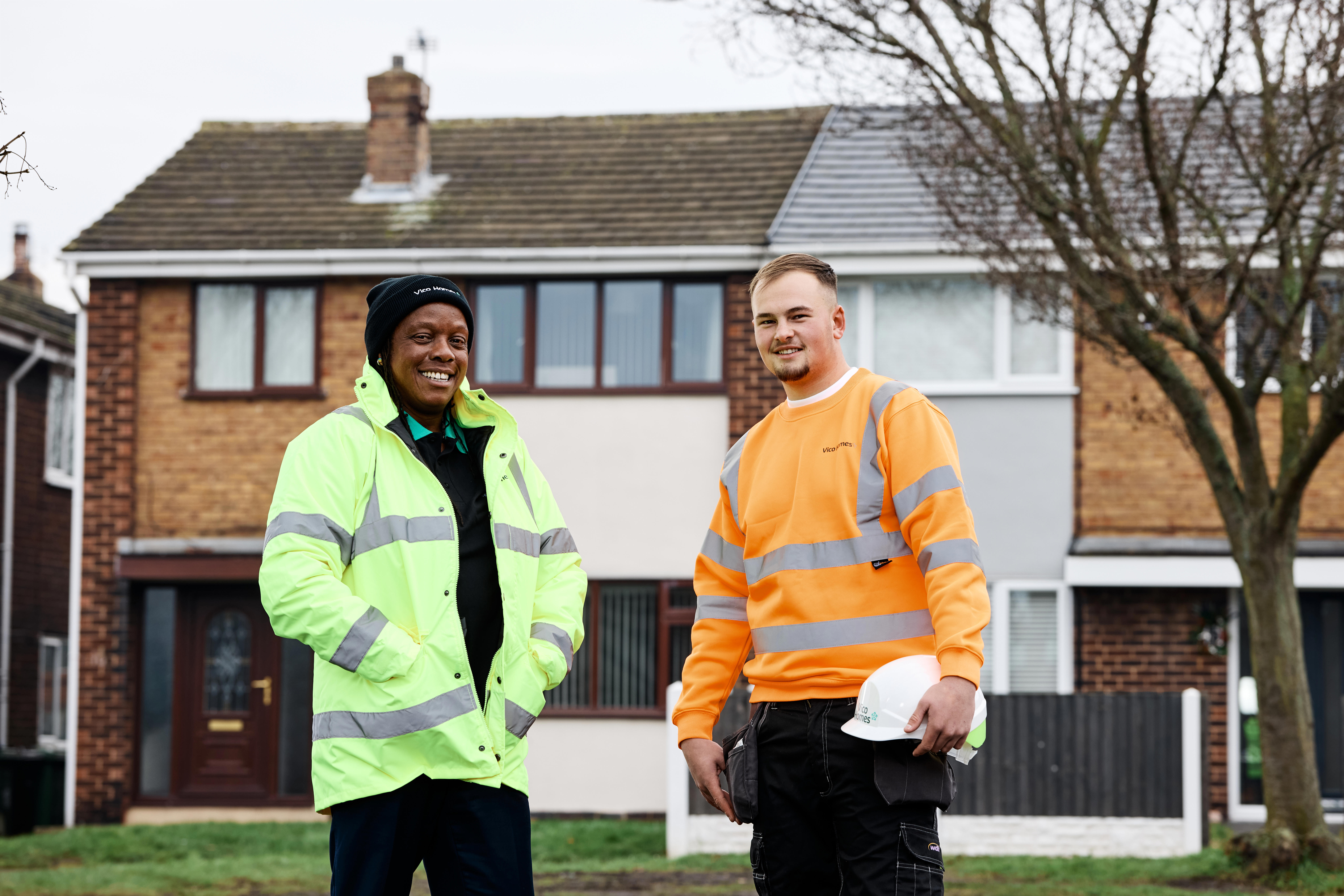A home is more than four walls and a roof.
It should be a safe place. A place to start things. A place of opportunities. A place to grow. A place you feel you belong. These are the places we provide for today and for the future.
Our people are approachable and professional. And we’re not afraid to be optimistic and show passion for what we do to support our customers.
We have over 32,000 homes across the north of England, home to tens of thousands of people. And people are at the centre of what we do.
We are regulated by the Regulator of Social Housing and have been awarded the highest rating for governance (G1), meaning we're well managed, and V1 recognising our financial stability.
Vico Homes is built on the foundations of WDH.
We involve customers at all levels when we're making decisions that affect them or improvements to our services. From our customer panel of over 800 tenants to our neighbourhood panels and customer committee, we have loads of options for customers to get involved.
We've a management team, led by our Chief Executive, Martyn Shaw, who make sure that we are doing what's best for our customers, colleagues and communities and that we are delivering our 'Plans for the future'.
Our Board is responsible for setting our strategy and making sure that we are doing what we said we would and the right thing for our customers and the business.
We're heavily regulated by the Regulator of Social Housing and everything we do needs to match what they say we should be doing. That means we need to be managed well (we have the top grade for this, G1), we need to have strong finances (we have the top grade for this, V1) and we need to deliver the best for customers (we haven't been measured for this one just yet).
Housing associations are misunderstood a lot of the time. We're not the Council, we're not public funded and we don't rely on donations...
Vico Homes is a Community Benefit Society.
This means that the bulk of the money we invest in new homes, existing home, vibrant communities and support to customers comes from people paying their rent, loans and some grants.
We consider value for money in everything we do and spend money where we're confident we'll see a return on investment that will be reinvested into homes and communities.
Everything we spend is reported in our annual financial statement and accounts which you can view here.
What is a Community Benefit Society (CBS)?
A CBS is a type of not for profit organisation that is registered with the Financial Conduct Authority with the specific intention that it must benefit the community. CBSs used to be known as ‘Industrial and Provident Societies’ and are well established in many sectors. Most housing associations are CBSs, because of the nature of the work they carry out.
Is Vico Homes still regulated as a CBS?
Yes, as a CBS Vico Homes continues to be registered with and regulated by the Regulator of Social Housing (RSH). We remain a charitable organisation and are still required to comply with charity law. However, we are now an ‘Exempt Charity’ which means that we have the benefit of the same business flexibilities which are available to the majority of housing associations.
Does being a CBS change who can live in a Vico Homes property?
No, as a charitable organisation our lettings policy already ensures that our houses are provided to people who are in genuine housing need. On becoming a CBS we did not make any changes to the services we deliver or the support we provide and the promises we have made will be kept. In fact, converting to a CBS has helped to better protect what we do and helps us to continue to invest in homes and communities.
What effect does becoming a CBS have on customers’ rights?
None.
Becoming a CBS did not affect any rights of customers' under their tenancy agreement or lease, and any statutory rights that they may have, such as the preserved Right to Buy or Right to Acquire.
Qualifying leaseholders also retained their statutory right to claim an extension to their lease or to collectively purchase the freehold to their building.
Changing to a CBS does not affect the rent, or any service charges that customers pay, or how these are calculated.

